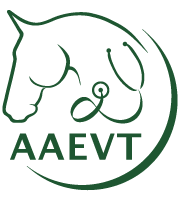EHV-1: A Tale of Two Treatments
Aspirin and Acyclovir During an EHV-1 Outbreak
Equine Herpesvirus-1 (EHV-1) is endemic to the North American horse population, with more than 80% of horses exposed to the virus by age 2. However, few treatments have been evaluated during naturally occurring outbreaks.
Susannah S. Lewis, DVM, PhD, of the Rainland Farm Equine Clinic in Woodinville, Wash., recently experienced such an outbreak firsthand. She spoke about the effect of antiviral and anticoagulant treatment at a 60-horse boarding and training farm at the 65th Annual AAEP Convention in Denver.
Modern Equine Vet – Vol 10 Issue 6
Neurotropic strain
The index case underwent a respiratory panel for 5 common respiratory pathogens via nasal swab PCR. Results were positive for EHV-1 G2254, which is known as the neurotropic strain due to the higher rate of neurologic disease. This strain is also known to cause abortion, but luckily there were no pregnant mares on the farm at the time, she said.
“Our index case had a fever at day 0, and then it progressed,” Dr. Lewis said. “It was a weekend and there was a shipping delay, so we didn’t get the results back Aspirin and Acyclovir During an EHV-1 Outbreak By Paul Basilio from the nasal PCR swab until day 6. At that point, the horse had recovered.”
Read the full article HERE: https://issuu.com/themodernequineveterinarian/docs/equinevet_june2020_final/4?fr=sNjA1NDE1ODYxNjQ
